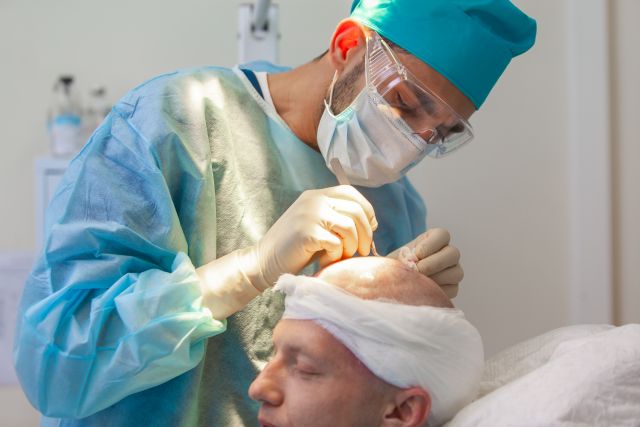How Effective are Hair Transplants? Do They Really Work?
Hair transplantation has become increasingly popular as a solution for those experiencing hair loss due to conditions like male pattern baldness, female pattern baldness, and other hair-related disorders. The primary cause of hair loss is genetics, specifically, male pattern baldness and female pattern hair loss. These conditions are characterized by a distinctive pattern of hair loss, often beginning with thinning hair or a receding hairline in men and general thinning in women.

Other common causes of hair loss include hormonal imbalances, diseases like lupus and diabetes, scalp infections, stress, and nutritional deficiencies. Certain medications, such as chemotherapy drugs used for cancer treatment, can also cause hair loss.
Why Consider Hair Transplantation?
Hair transplants are surgical procedures that aim to restore hair growth in areas of the scalp with thinning or no hair. The procedure involves removing hair follicles from a “donor area” (typically the back or sides of the scalp) and transplanting them to the balding or thinning area.
Hair transplants have proven to be more successful than over-the-counter hair restoration products. However, several factors can affect the success rate of a hair transplant:
- Up to 80 percent of transplanted hair will fully grow back in an estimated three to four months.
- Transplanted hair, like regular hair, will thin over time.
- People with dormant hair follicles may have less effective transplants.
The cost of hair transplants varies widely, ranging from approximately $4,000 to $15,000 per session. Factors that can influence the final cost include the extent of the transplant procedure, the surgeon’s experience, the surgical technique used, and geographical location.
Types of Hair Transplant Procedures
There are three primary methods of hair transplantation: Follicular Unit Transplantation (FUT) and Follicular Unit Extraction (FUE). Both procedures involve transplanting hair follicles from a donor area to a recipient area but differ in how the follicles are harvested.
- Multi-Unit Hair Grafting (MUHG) is a blend of surgical technologies, along with an array of different-size grafts according to what best fits the individual patient’s needs. Pioneered by PAI Medical Hair Restoration, this procedure allows us to achieve the desired density and natural appearance expected by people today in the fewest visits possible, limiting inconvenience and cost.
- Follicular Unit Transplantation (FUT). In FUT, a surgeon removes a strip of scalp from the back of the head and divides it into individual grafts, each containing one to four hair follicles. These grafts are then transplanted into the recipient area.
- Follicular Unit Extraction (FUE). FUE involves extracting individual hair follicles from the donor area and transplanting them into the recipient area. This method avoids the linear scar associated with FUT but may lead to more scattered, less noticeable scarring.
Hair Transplant Post-Operative Recovery
Recovery from a hair transplant procedure varies depending on the individual and the scale of the operation. In general, patients can expect some swelling, pain, and soreness in the donor and recipient areas following the procedure. These symptoms typically subside within a few days with appropriate aftercare and medication.
As with any surgical procedure, hair transplants carry some risk of side effects. The most common side effect is scarring, which can occur with any procedure. Other potential side effects include infections, bleeding, inflammation of hair follicles, and loss of sensation around the surgical sites.
Hair Transplants: The Bottom Line
Hair transplants can be a viable solution for those dealing with significant hair loss. However, not everyone is a suitable candidate for the procedure. It’s essential to discuss your options with a qualified health care provider or hair transplant surgeon to determine the best approach for your specific situation and needs.
Hair transplantation is an evolving field, and new techniques and technologies continue to emerge. With proper care, realistic expectations, and a skilled surgeon, hair transplants can provide a lasting solution to hair loss and significantly improve a person’s appearance and self-esteem.
Hair Transplants in Jacksonville, Florida
Keep in mind that hair transplants are a big decision that requires careful consideration and consultation with your healthcare provider.
If you are in the Jacksonville, Florida area and are considering a hair transplant, we invite you to contact us to schedule a complimentary, private hair consultation where we can answer all your questions and help formulate the most appropriate hair restoration plan for your needs. Remember, a successful hair restoration is not just about the procedure itself, but also about how well you take care of your scalp and hair afterwards.
